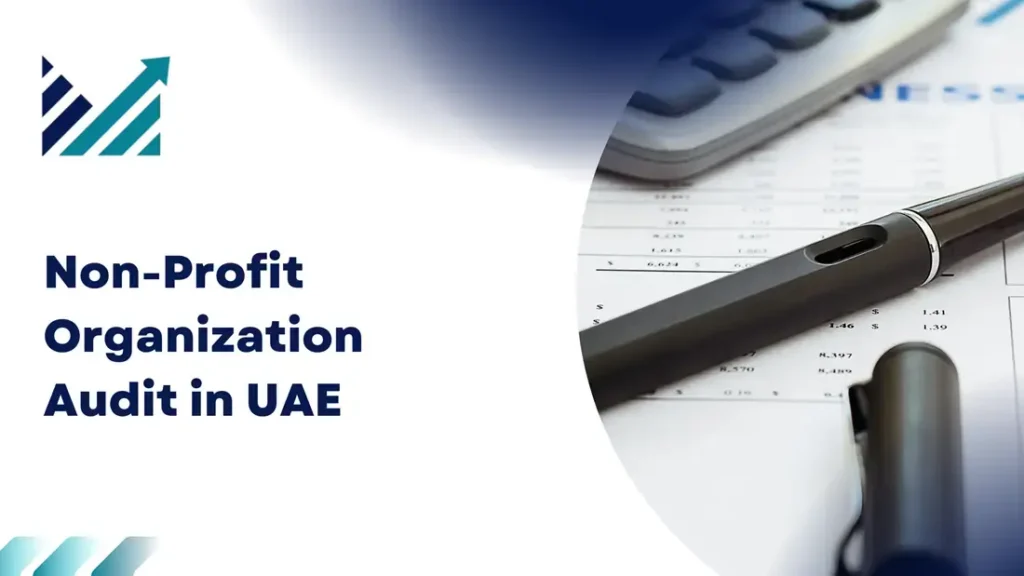
Running a non-profit organization in the UAE comes with many responsibilities. Among them, ensuring financial transparency and compliance is crucial. This is where the role of an audit becomes essential. An audit for non-profit organizations in UAE is not just a legal or regulatory formality—it’s a powerful tool. It strengthen accountability, build donor trust, and guide decision-making.
In this detailed guide, we’ll explore why audits matter for NGOs in UAE. The different types of audits available, what an audit involves, and what every non-profit should know to stay compliant and transparent. Let’s begin.
Benefits of Conducting Audits for NGOs
Non-profit organizations work tirelessly to achieve social goals, often depending on grants, donations, and public funding. Conducting an audit offers many advantages beyond regulatory compliance:
1. Enhancing credibility and donor confidence
Audited financial statements show donors, grant providers, and partners that the organization handles funds responsibly. This transparency is key for maintaining existing funding and attracting new sources.
2. Strengthening internal controls
Auditors review systems and processes. Their insights help identify gaps in internal controls and recommend improvements, reducing risks of fraud or financial mismanagement.
3. Facilitating strategic decision-making
With clear, accurate financial information, boards and management can make better strategic choices—whether that’s launching new projects, adjusting budgets, or securing funding.
4. Meeting regulatory requirements
Depending on an NGO’s size and activities, UAE laws and free zone authorities may require annual audits. Staying compliant avoids penalties and ensures the organization remains in good standing.
5. Improving operational efficiency
Audit findings often highlight inefficiencies, duplicate processes, or areas where costs could be saved, helping NGOs make the most of limited resources.
In summary, audits help non-profits protect their reputation, improve financial health, and stay focused on their mission.
Types of Audits for NGOs
The audit needs of non-profit organizations can differ depending on size, complexity, and funding requirements. Here are the main types:
1. Financial statement audit
The most common type, this involves an independent auditor examining financial records to express an opinion on whether the financial statements are presented fairly and comply with accounting standards.
2. Compliance audit
Focuses on whether the NGO adheres to applicable laws, donor restrictions, and grant agreements. This type of audit is often required by institutional donors or government agencies.
3. Internal audit
An internal team or external consultants review operational processes, internal controls, and risk management. The goal is to help management improve processes and reduce risks.
4. Performance or program audit
Evaluates whether projects and programs are achieving their intended outcomes efficiently and effectively. This helps NGOs assess impact and accountability beyond financial figures.
Each type of audit serves a specific purpose, but many NGOs in the UAE conduct annual financial audits as a minimum requirement.
Assessment of Financial Reports
Auditing a non-profit organization involves more than checking income and expenses. It includes a thorough review of the organization’s financial reports to ensure:
- Completeness: All donations, grants, and income sources are recorded.
- Accuracy: Expenses are properly documented and classified.
- Compliance: Financial reports follow applicable UAE accounting standards and legal requirements.
- Disclosure: Key details, such as related party transactions, restricted funds, and grant conditions, are transparently disclosed.
Auditors usually assess:
- Statement of financial position (balance sheet)
- Statement of activities (income and expenses)
- Statement of cash flows
- Notes to the financial statements, explaining accounting policies and special transactions
Through this process, auditors identify discrepancies, recommend corrections, and issue an audit opinion that reflects the accuracy of the reports. Consult with best audit firms in Dubai to get help.
Audit Checklist for Non-Profit Organization in UAE
Preparing for an audit can feel overwhelming. A structured checklist helps NGOs get organized and ensures the process goes smoothly:
1. Governance and legal documents
- Registration certificates (e.g., from Dubai Associations Centre, Abu Dhabi Department of Community Development, etc.)
- Founding documents, by-laws, board resolutions
2. Financial records
- General ledger and trial balance
- Bank statements and reconciliations
- Receipts and invoices for all expenses
- Payroll records and contracts
3. Funding and donations
- Donation registers
- Grant agreements and reports
- Evidence of donor restrictions or conditions
4. Fixed assets and inventories
- Asset register
- Depreciation schedules
- Inventory lists and valuation reports
5. Governance and operational documents
- Board meeting minutes
- Policies on procurement, conflict of interest, and internal controls
6. Compliance records
- VAT filings (if applicable)
- Correspondence with regulators or donors
7. Previous audits and management letters
- Copies of prior audit reports
- Action plans for past audit recommendations
Having these documents ready saves time and helps auditors complete their work effectively.
FAQs
What is the key focus in the audit of a non-profit organization?
The key focus is verifying that the organization’s financial statements fairly represent its financial position and results, ensuring compliance with laws and donor restrictions, and assessing internal controls to prevent misuse of funds.
What is the threshold limit for audit in UAE?
In general, most free zones and mainland regulations require all registered non-profit organizations to prepare annual audited financial statements, regardless of revenue. However, some smaller entities might be exempt based on specific free zone rules. Always check the relevant authority’s guidelines.
When should an audit be filed in the UAE?
Typically, non-profit organizations must complete and file their audited financial statements within three to six months after the financial year-end, depending on the licensing authority (e.g., Dubai Associations Centre, ADGM, etc.).
Final thoughts
Conducting a non-profit organization audit in UAE isn’t just a regulatory checkbox. It’s an investment in transparency, credibility, and long-term sustainability. By understanding the benefits, preparing the right documents, and choosing the right type of audit, NGOs can strengthen governance, build donor confidence, and focus on their mission with clarity.
If your NGO is planning its next audit, start early, keep clear records, and work closely with experienced auditors who understand the unique challenges of the non-profit sector in the UAE. By doing so, you not only meet compliance requirements—you set your organization up for greater impact and trust.

